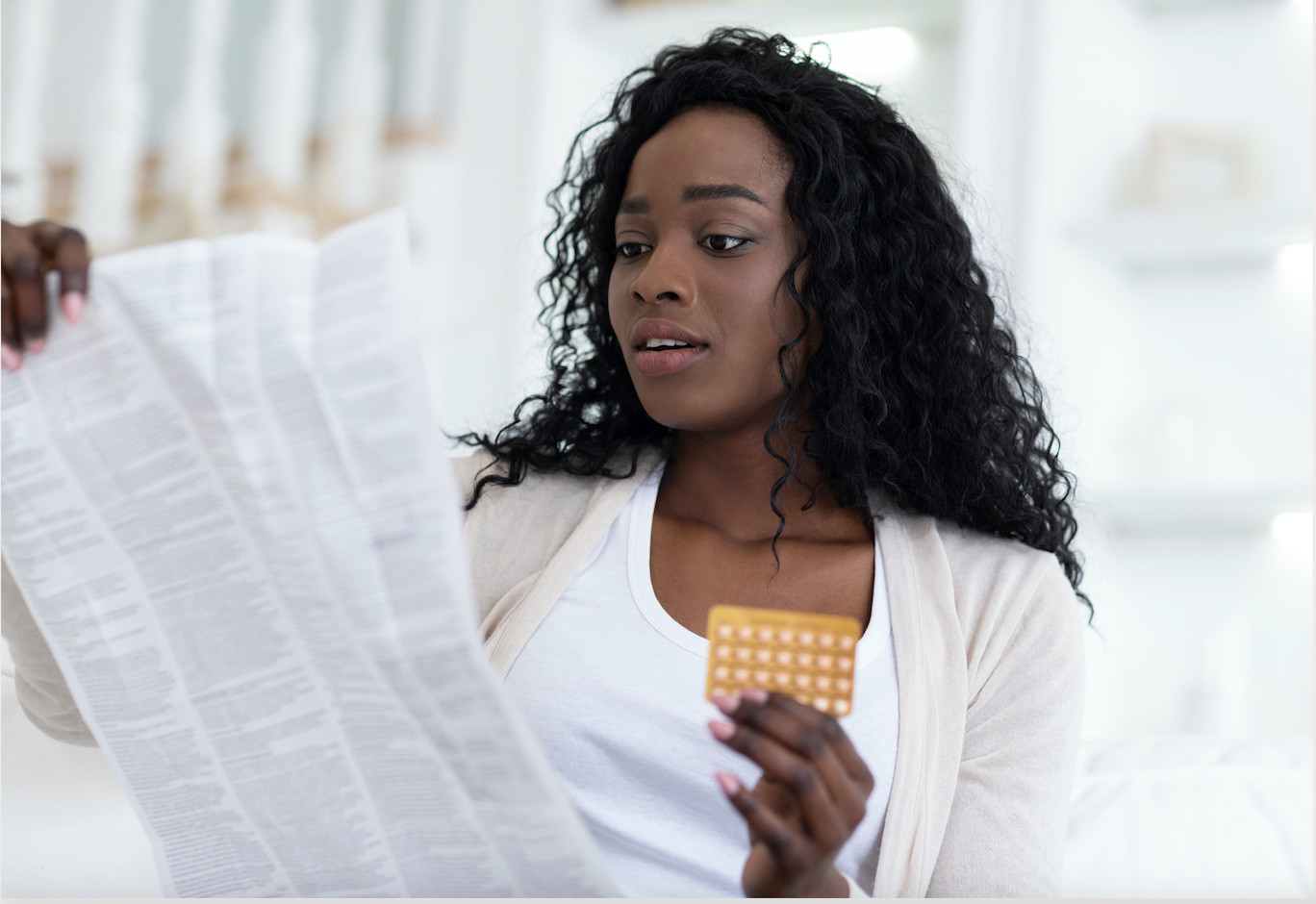
Health & Medicine
Why are women ignored by medical research?

A new citizen science project is helping people understand how their menstrual cycle and hormonal birth control affects mood, wellbeing and behaviour
Published 2 October 2020
Yaz. Yasmin. Isabelle. Diane. Brenda.
There are more than 30 different brands of contraceptive pill in Australia alone, and while they don’t all have cutesy condescending women’s names, they are taken daily by more than 100 million people worldwide to protect against unwanted pregnancy, resolve hormone imbalances and improve complexion.

A new study now indicates that the pill also affects patterns of activity in areas of the brain related to stress, memory and emotional processing. In line with previous research, changes were seen in both brain structure and function, with some greater differences among women who started using the pill in adolescence.

Health & Medicine
Why are women ignored by medical research?
The study compared two groups of 18 to 26-year-old women: those who were currently using and those who have never used the oral contraceptive pill.
Participants completed a social stress test, which involved cortisol sampling, public speaking and a mental arithmetic task.
They then completed questionnaires assessing anxiety and depression, an emotional memory task and a structural and functional MRI brain scan.
Pill use was linked to increased activation in the prefrontal cortex during working memory processing for negatively arousing stimuli, such as images of a car crash or gun. This suggests that the negative images were having greater impact on them.
Women on the pill also showed structural changes in brain regions implicated in emotion regulation and memory, suggesting that the pill affects important neural pathways of the brain.
Women who started using the pill during adolescence also showed a blunted cortisol response compared with women who started using the pill in adulthood – that is, the stress hormone cortisol was less responsive in women on the pill.

These changes might sound positive, but they are largely bad news.
Reduced or blunted cortisol responses are typically observed in chronically stressed populations and are characteristic of burnout and fatigue.

Health & Medicine
How good cholesterol can keep women’s brains healthy
Overall, the results suggest that the amount of time women use the pill may influence their emotional sensitivity, and help explain why some women develop mood disorders following oral contraceptive use.
Similar responses have been observed in users of different hormonal contraceptives, such as the patch or hormonal IUD, and also following physical stress.
Taken together, the results point to an uncharted intersection between the pill, age at first use and the mental wellbeing of women.
Despite being one of the most widely prescribed medicines in the world, this research shows that there is a lot about the effects of the pill that we don’t know.
Very little research systematically addresses the psychological and behavioural effects of the oral contraceptive pill, and this lack of research is a real problem.
However, we do know that psychology and behaviour both change depending on levels of ovarian hormones, and that contraceptives like the pill can greatly affect these hormones.

Just like those in this new study, some of the effects of the pill on psychological functioning are dramatic, and mostly the public tends to be unaware of them. Women on the pill are more likely to be diagnosed with depression and less likely to adapt to fearful stimuli.

Health & Medicine
It’s a fact: Women get better with age
Compared with non-users, pill users show substantial alterations in neural structures indicative of chronic stress, and in the areas of the brain associated with cognition and emotion.
Pill users spend less time solving challenging cognitive tasks – a sign of reduced perseverance. In economic tasks, pill users also make disadvantageous competitive bidding decisions compared to non-users, and shy away from competition more generally.
In the arena of sex and relationships, pill use can reduce sexual desire and even change the kind of men that women prefer as romantic partners. Going on and off the pill in a relationship can also lower relationship satisfaction.
This research suggests a broad and worrying range of effects of the pill on socio-cognitive behaviour and psychological well-being and mostly people taking the pill have no idea about these effects.
There is no question that the contraceptive pill has been a boon to reproductive freedom, and there’s no doubt that many people worldwide would be much worse off without it.
Yet these findings highlight a lack of knowledge about the pill and its effects on those who take it.

The effects of the pill on stress, perseverance, economic decisions, sexual desire, and relationship satisfaction almost never make it into the listed medication side-effects, and often aren’t the kinds of effects that usually preoccupy physicians.

Health & Medicine
Women and the slowing global population
As with many academic findings, knowledge transfer is a problem.
Things get even more complicated when considering that hormonal contraceptives vary in their route or mode of delivery (such as the pill, patch, injection, implant), whether they deliver a single synthetic class of hormone or a combination, the specific type of hormone within each class, the dose of each hormone, the variability of dose and the number of hormone free days.
This means that while all hormonal contraceptives prevent conception, some contraceptives will affect psychology and wellbeing quite differently compared to others.
Likewise, some contraceptives will show greater effects on particular days of a standardised 28-day menstrual cycle.
Understanding how different classes of the pill affect users’ psychology, and at what points in the cycle, is something we need to know more about.
More knowledge of the menstrual cycle and ovarian hormones is also warranted: For many millions of people worldwide, menstruation can regularly and catastrophically disrupts their social, physical and mental well-being.

To give women clarity about their own menstrual cycle and how it affects them, we’ve developed a new citizen science initiative called the Daily Cycle Diary.
The Daily Cycle Diary allows people with menstrual cycles — including those using or not using hormonal contraceptives — to track how their cycle affects them.

Health & Medicine
Tackling misconceptions about ovarian cancer
Our research team will then the anonymised data to understand the effects that the menstrual cycle and contraceptives have on people’s psychology, wellbeing and behaviour.
We’ve included a broad range of psychological measures that tend to be neglected, but are often of great interest to people – such as assertiveness, mood, self-esteem, optimism, competitiveness, as well as health and wellbeing.
We also provide each user with a personalised report of their own psychology and behaviour across their menstrual cycle. The report allows people to understand and track how their menstrual cycle might be affecting them, and to compare themselves with contraceptive pill and non-pill users.
The Daily Cycle Diary is simple to fill out, open to everyone with a menstrual cycle, and completely free of charge.
So many people feel like they’re at the mercy of their menstrual cycle – lacking the roadmap to effectively navigate their moments of melancholy and bursts of inspiration.

Armed with more information, we hope to put power back in the hands of people everywhere who are adversely affected by their menstrual cycles and hormonal contraceptives.
The Daily Cycle Diary is not therapeutic in nature or design, and it isn’t suitable as a form of psychological treatment. If you are concerned about your wellbeing and your menstrual cycle, please see your GP or consult with an online support service, including Lifeline.
To join the Daily Cycle Diary as a member of the general public, visit this link to register or contact Dr Khandis Blake at the Evolution, Conflict and Equality Laboratory in the Melbourne School of Psychological Sciences for more information.
Banner: Getty Images